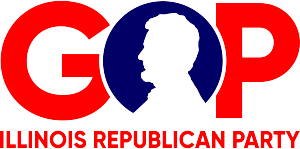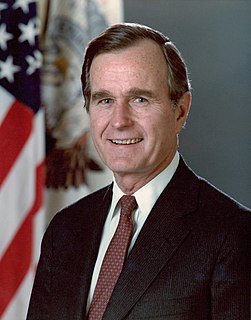
The Illinois General Assembly (IGA) is the bicameral legislature of the U.S. state of Illinois and comprises the Illinois House of Representatives and the Illinois Senate. The General Assembly was created by the first state constitution adopted in 1818. The State Senate has 59 members while the House has 118 members, all elected from single-member districts. A Senate district is formed by combining two adjacent House districts. The current General Assembly is Illinois's 100th. The General Assembly meets in the Illinois State Capitol in Springfield, Illinois. Its session laws are generally adopted by majority vote in both houses, and upon gaining the assent of the Governor of Illinois. They are published in the official Laws of Illinois.

The Illinois gubernatorial election of 2006 occurred on November 7, 2006. The Governor of Illinois, Democrat Rod Blagojevich, won re-election for a four-year term scheduled to have ended on January 10, 2011. However, Blagojevich was impeached and convicted in 2009. Many observers expected the race to be close, especially considering the polling, which has shown Governor Blagojevich had a high disapproval rating. However, the Republicans had fared poorly in elections since 2002 due to scandals involving prior Governor George Ryan, and the increasingly unpopular presidency of George W. Bush.

Patrick Joseph Quinn Jr. is an American lawyer and politician who served as the 41st Governor of Illinois, from 2009 to 2015. A Democrat, Quinn began his career as an activist by founding the Coalition for Political Honesty. He is currently working on Take Charge Chicago, a petition for referendums to limit the Mayor of Chicago to two four-year terms and create an elected Consumer Advocate in the city.
The 2006 Election for statewide offices in the State of Illinois were held on 7 November 2006. On that date, registered voters in the State of Illinois were eligible to elect officeholders in six statewide offices: the office of Governor of Illinois, Lieutenant Governor of Illinois, Illinois Attorney General, Illinois Secretary of State, Illinois Treasurer and Illinois Comptroller.

The Illinois Republican Party is the state-level affiliate of the Republican Party in Illinois. Since May 17, 2014, it has been chaired by Tim Schneider. The party is one of two legally established, statewide political parties in Illinois, the other being the Democratic Party.
The US state of Illinois is a Democratic stronghold and one of the "big three" Democratic states alongside California and New York. It is considered one of the most Democratic states in the nation and following the 2018 elections, all six statewide elected offices are held by a Democrat.

The 2010 Illinois gubernatorial election took place on November 2, 2010. Incumbent Democratic Governor Pat Quinn sought and was elected to a full term in office. Quinn was elected as the Democratic nominee, the Illinois Green Party nominee was attorney and 2006 nominee Rich Whitney, the Republican nominee was State Senator Bill Brady, the Libertarian Party nominee was Lex Green, and Scott Lee Cohen ran as an independent. Governor Quinn won election to a full term in a very close race, beating Senator Brady by only about 32,000 votes, despite Brady winning in 98 of 102 Illinois counties.

Elections in Illinois provide for the election of over 40,000 elected seats across over 6,000 units of government.

Elections were held in Illinois on Tuesday, November 2, 2010. Primary elections were held on February 2, 2010.

The 2010 elections for the Illinois Senate was conducted on Tuesday, November 2, 2010. The 2010 primary election was conducted on Tuesday, February 2, 2010. State Senators elected this year sat for two year terms, all of which expired at the beginning of the next General Assembly.

The expression the collar counties is a colloquialism for the five counties of Illinois that border Chicago's Cook County. After Cook County, they are also the next five most populous counties in the state. According to the Encyclopedia of Chicago, there is no specifically known origin of the phrase, but it has been commonly used among policy makers, urban planners, and in the media. However, it also notes that as growth has spread beyond these counties, it may have lost some of its usefulness.

The 2012 United States presidential election in Illinois took place on November 6, 2012, as part of the 2012 General Election in which all 50 states plus The District of Columbia participated. Illinois voters chose 20 electors to represent them in the Electoral College via a popular vote pitting incumbent Democratic President Barack Obama and his running mate, Vice President Joe Biden, against Republican challenger and former Massachusetts Governor Mitt Romney and his running mate, Congressman Paul Ryan. The Obama/Biden ticket won Illinois with 57.60% of the popular vote to Romney/Ryan's 40.73%, thus winning the state's 20 electoral votes by a margin of 16.87%.

The 2014 United States Senate election in Illinois took place on November 4, 2014, to elect a member of the United States Senate to represent the State of Illinois, concurrently with the election of the Governor of Illinois, as well as other elections to the United States Senate in other states and elections to the United States House of Representatives and various state and local elections.

The 1988 United States presidential election in Illinois took place on November 8, 1988. All 50 states and the District of Columbia were part of the 1988 United States presidential election. Illinois voters chose 24 electors to the Electoral College, which selected the president and vice president.

A general election was held in the U.S. state of Illinois on November 4, 2014. All of Illinois' executive officers were up for election as well as a United States Senate seat, and all of Illinois' eighteen seats in the United States House of Representatives. Primary elections were held on March 18, 2014.

The 2016 United States presidential election in Illinois was held on November 8, 2016, as part of the 2016 General Election in which all 50 states plus The District of Columbia participated. Illinois voters chose 20 electors to represent them in the Electoral College via a popular vote pitting the Republican Party's nominee, businessman Donald Trump, and running mate Indiana Governor Mike Pence against Democratic Party nominee, former Secretary of State Hillary Clinton and her running mate, Virginia Senator Tim Kaine.

The 2020 United States Senate election in Illinois will be held on November 3, 2020, to elect a member of the United States Senate to represent the State of Illinois, concurrently with the 2020 U.S. presidential election, as well as other elections to the United States Senate in other states and elections to the United States House of Representatives and various state and local elections.

The Illinois general election was held on November 8, 2016.

The 1964 United States presidential election in Illinois took place on November 3, 1964, as part of the 1964 United States presidential election. Illinois voters chose twenty-six representatives, or electors, to the Electoral College, who voted for president and vice president.














